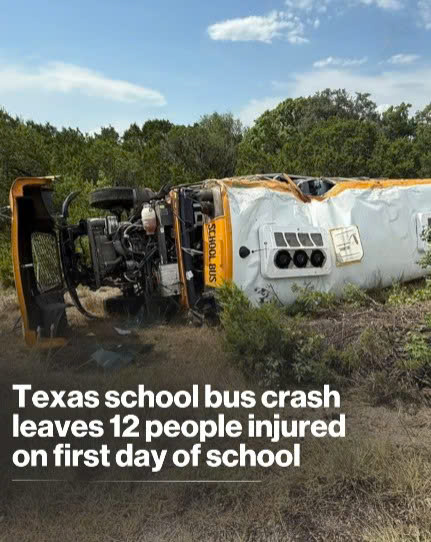On August 6, 2025, the people of Tanzania marked eight painful years since the Karatu school bus disaster, a tragedy that has remained etched into the nation’s memory and continues to serve as a sobering reminder of the fragility of life and the importance of road safety. The incident involved a minibus belonging to Lucky Vincent Primary School in Arusha, a respected institution known for producing high-achieving students.

What was supposed to be a simple academic trip quickly turned into one of the darkest moments in Tanzania’s recent history, leaving families shattered and the country in mourning. The bus was carrying children between the ages of 12 and 13, bright young students who were preparing for upcoming examinations. They represented the future of their families and the promise of Tanzania itself, yet their lives were cut short in an instant when the vehicle lost control near Karatu. The road, made slippery by heavy rainfall, had sharp, dangerous curves, and combined with speeding, these conditions created a deadly situation.
Within moments, the bus plunged into a ravine, and the joyful voices of students excited for their journey were silenced forever. Rescue workers and local volunteers rushed desperately to the crash site, hoping against all odds to pull survivors from the wreckage, but despite their best efforts, the overwhelming majority of those onboard did not make it. In total, 32 children were killed, along with two teachers and the bus driver, leaving entire communities devastated and the country struggling to comprehend the magnitude of the loss.
News of the accident spread rapidly across Tanzania, and the wave of grief that followed was overwhelming. Families, friends, and citizens gathered in disbelief, trying to accept what had happened. Funerals were held across Arusha, where thousands of mourners filled the streets to offer condolences, prayers, and solidarity with the grieving parents. These scenes became moments of unity in sorrow, as people from all walks of life recognized that the tragedy was not just a loss for individual families but a wound felt by the entire nation.
In response to the heartbreaking news, President John Magufuli declared the incident a national tragedy and addressed the country with a statement that mourned the loss of what he called Tanzania’s “bright young stars.” His words resonated deeply, capturing the despair of parents who had placed their hopes in the academic achievements and future potential of their children. Teachers and classmates described the students as highly motivated and intelligent, full of dreams to become doctors, teachers, and leaders who could one day shape the future of their country.
Those dreams were suddenly erased in a single tragic moment, leaving a void that could never truly be filled. In the aftermath, the Karatu disaster became a turning point in Tanzania’s national dialogue about road safety. The initial investigation identified speeding and hazardous road conditions as major causes, sparking urgent calls for reforms. Campaigns began pushing for stricter enforcement of traffic regulations, better training for drivers, and safer systems for school transportation. While progress has been slow, the accident highlighted the risks children face on the roads and the collective responsibility to ensure their safety.
Beyond the practical lessons, the tragedy also had a profound emotional impact on the people of Tanzania. Parents still speak of the laughter, ambitions, and innocence of the children they lost. For them, the memories are not abstract statistics but deeply personal reminders of sons and daughters who never got the chance to grow up and live their dreams. Each year, anniversaries of the disaster bring renewed grief but also renewed resolve to honor the lives that were lost by working toward a safer future. The funerals, though marked by overwhelming sorrow, also became moments of solidarity, uniting communities and reminding the nation that even in its darkest hours, compassion and resilience can help people endure. Now, eight years later, the scars of the Karatu tragedy remain vivid.
Families continue to carry the weight of their loss, while the nation reflects on the lessons learned and the work that remains to be done. The children who perished are remembered not only as victims of a tragic accident but also as symbols of a future that was cruelly taken away. Their absence serves as a solemn call to action, urging everyone—from government officials to ordinary citizens—to remain vigilant and committed to safety. Though time has passed, the Karatu school bus disaster continues to be remembered as both a national sorrow and a powerful reminder of the duty to protect children, whose lives embody the hope and promise of the nation’s tomorrow.





